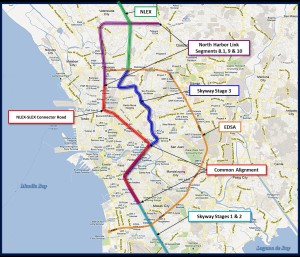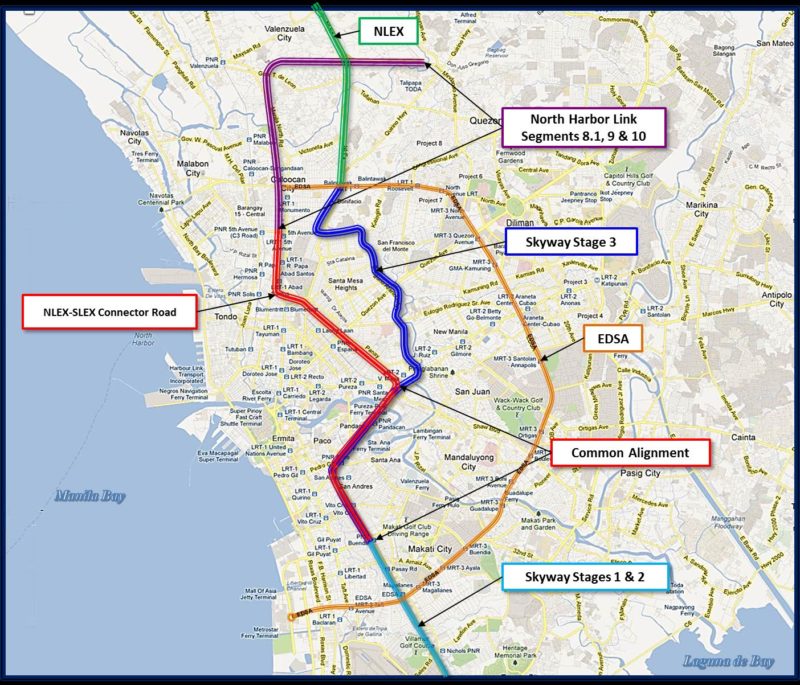 The National Economic and Development Authority (NEDA) Board has approved five multibillion-peso projects, including the P23-billion road project that will connect the North Luzon Expressway (NLEx) and the South Luzon Expressway (SLEx).
The National Economic and Development Authority (NEDA) Board has approved five multibillion-peso projects, including the P23-billion road project that will connect the North Luzon Expressway (NLEx) and the South Luzon Expressway (SLEx).
In a meeting on December 16, the NEDA Board chaired by President Benigno Aquino III approved the connector road project along with the following: P50.2-billion Regional Prison Facilities; P4.8-billion Manila-Quezon Avenue Bus Rapid Transit; P1.67-billion Integrated Marine Environment Monitoring System Phase 2; and the P11.43-billion Harnessing Agribusiness Opportunities through Robust and Vibrant Entrepreneurship (HARVEST).
Under the Public Private Partnership (PPP) scheme, the NLEx-SLEx connector project involves construction of an eight-kilometer, four-land toll road that will link the existing NLEx-SLEx. The project was first approved by the NEDA Board in November 2012.
“The NEDA Board gave its approval to the results of the negotiation so that they can proceed with the Swiss challenge,” Communications Secretary Herminio Coloma said.
A Swiss challenge is a process in public procurement in which a public authority which has received an unsolicited bid for a project publishes details of the bid and invites third parties to match or exceed it.
The New Bilibid Prison project involves the financing, construction and maintenance of a new prison facility capable of accommodating 26,000 inmates, both male and female.
The Manila-Quezon Avenue Bus Rapid Transit system was approved to traffic issues.
The Department of Transportation and Communications project involves the creation of a 12.3-kilometer segregated public bus lane from Quezon Memorial Circle to Manila City Hall.
Funding for this project will come from the World Bank and Agence Française de Développement.
The HARVEST project will finance eligible investments of large agribusiness enterprises, cooperatives/farmers’ organizations and micro, small and medium enterprises in support of crop production, poultry/livestock production, fish production/fishery development, agri-services supportive of economic activity (for example, slaughterhouse, cold storage, etc.).
The project will be funded by loans from the Japan International Cooperation Agency and the World Bank.
Phase two of the Integrated Marine Environment Monitoring System was also given the go signal in an effort to comply with European Union (EU) requirements.
This project involves the improvement and expansion of the PHILO Phase I, particularly the Vessel Monitoring System and the integration of various database including fishing vessel registry, ocean and weather data, stock assessment data, illegal, unreported and unregulated fishing records, among others.
Phase 2 is dedicated to the setting up of an integrated operational fisheries and marine environment monitoring center in the Philippines that is interregional and interconnected with the main center.
The project will be funded through a loan extended by the French government to allow the Philippines to comply with EU fisheries regulations.
The Philippines exports around $300 million worth of fishery products to Europe every year, according to Secretary Coloma.
“This was required of us by the EU because many EU countries import significant amounts of fishery products from the Philippines. So now, we are compliant with the requirements.”
Image from www.dpwh.gov.ph





